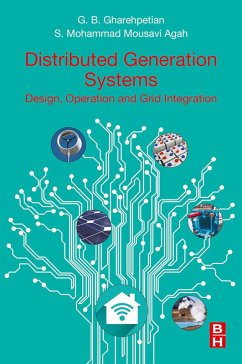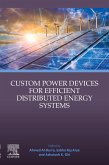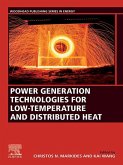This book is a useful reference for practitioners, featuring worked examples and figures on principal types of distributed generation with an emphasis on real-world examples, simulations, and illustrations. The book uses practical exercises relating to the concepts of operating and integrating DG units to distribution networks, and helps engineers accurately design systems and reduce maintenance costs.
- Provides examples and datasheets of principal systems and commercial data in MATLAB
- Presents guidance for accurate system designs and maintenance costs
- Identifies trouble shooting references for engineers
- Closes the information gap between recent research on distributed generation and industrial plants
Dieser Download kann aus rechtlichen Gründen nur mit Rechnungsadresse in A, B, BG, CY, CZ, D, DK, EW, E, FIN, F, GR, HR, H, IRL, I, LT, L, LR, M, NL, PL, P, R, S, SLO, SK ausgeliefert werden.









